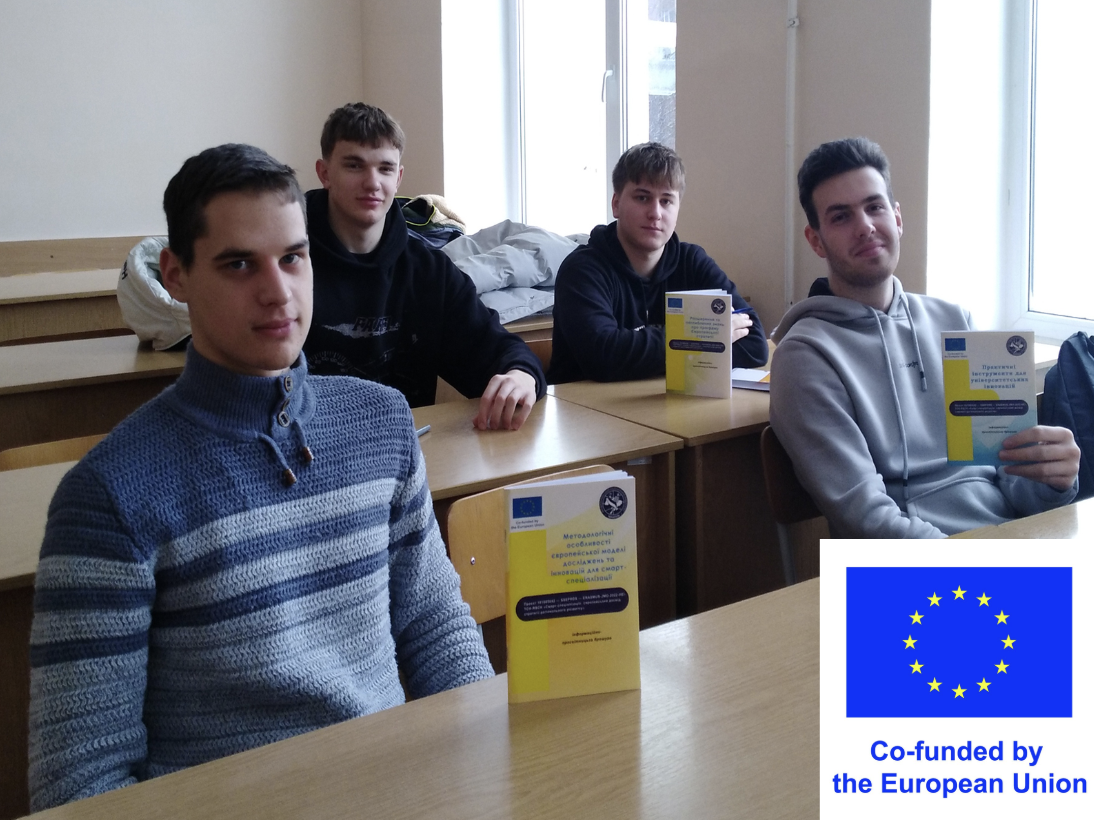A lecture on “Smart Specialization as an Innovative Approach to Strategic Planning for Regional Development” was held within the framework of the Jean Monnet Module, Erasmus (Project 101085642 – SSEPRDS – ERASMUS-JMO-2022-HEI-TCH-RSCH “Smart Specialization: European Experience in Regional Development Strategy”).
The lecture for bachelors was conducted by the lecturer: Olena Borysyak, PhD in Economics, Senior Lecturer at the Department of Transport and Logistics, Western Ukrainian National University
The following issues were discussed during the lecture:
- Smart specialization and innovative development in the European Union.
- Smart specialization of the European Union: priorities for strategic planning of regional development in Ukraine.
- Urbanism in the context of smart specialization and innovative regional development.
- European experience in strategic planning of regional development based on smart specialization.
The lecture notes that smart specialization is an approach developed by the European Commission as part of the Innovation Union initiative. It allows us to identify those sectors of the economy that have innovative potential and build mutually beneficial partnerships for their development, enabling the region to strengthen its own competitiveness. The peculiarity of this policy is that the government encourages and stimulates entrepreneurs, science and developers to cooperate better with enterprises to discover the main directions and/or sectors of the region’s specialization. Clusters are important in this concept, both as the main “blocks” for building such specialization and as a means of implementing this strategy.
The results of the lecture were to enable students to understand the main aspects of the innovative approach in the European smart specialization system and to be able to apply this knowledge in their future professional activities, as well as to raise awareness of the implementation of smart specialization in Ukraine.
Funded by the European Union. However, the expressed views and opinions belong solely to the authors and do not necessarily reflect the views of the European Union or the European Education and Culture Executive Agency (EACEA). Neither the European Union nor the grantor can be held responsible for them.

